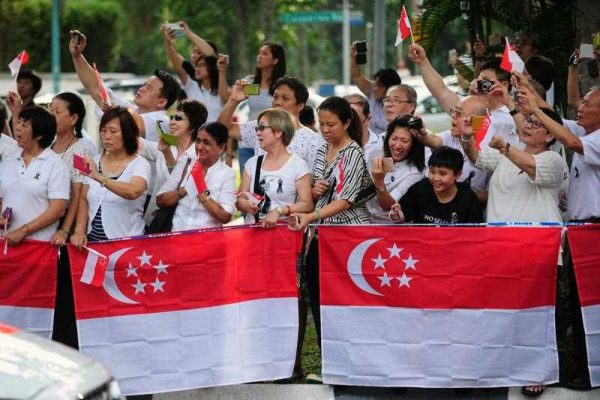The key driving factor for Lee was the fear that without a hinterland, and inside a hostile environment, the tiny island nation would struggle to survive. Lee’s government thus focused on economic development. Early on, the government decided to attract multi-national corporations to Singapore, shifting the economy’s orientation towards exports. The resulting rapid increase in GDP and GDP per capita are proof of the Lee government’s impressive economic achievements.
The first generation of leaders also achieved a great social transformation. The once highly segregated society became a multi-ethnic polity with four official languages: English, Mandarin, Malay and Tamil. Lee also strengthened the public housing program. Prior to independence, many people still lived in squatter homes scattered across the island. One of the first steps of the newly elected government was to allow many Singaporeans to purchase 99-year leases on affordable flats. As a result, Singapore today has one of the highest home ownership rates in the world.
While many successful policies were promoted by other leading members of the government, Lee Kuan Yew was the political strategist who engineered the absolute dominance of the ruling People’s Action Party (PAP). He was instrumental in outmanoeuvering the Leftist majority faction within his own party.
After the PAP’s election victory in 1959, disagreements — particularly over the merger with Malaysia — led to a split in 1961, when the Chinese-educated base formed the Barisan Sosialis (Socialist Front). Lee was worried about the broad public support for the new party and decided to arrest over 100 key Barisan Sosialis party members, as well as other left-leaning activists, under the draconian Internal Security Act on 2 February 1963. This ensured the PAP’s victory in the September 1963 general election, even though it garnered only 46.9 per cent of the vote — its lowest ever share. Following further intimidations, the Barisan Sosialis steadily lost members and eventually decided to boycott the 1968 election. It never recovered.
The PAP held this absolute majority in parliament until 1981 when J. B. Jeyaretnam of the Workers’ Party became the first ever opposition member of parliament in a by-election. But this victory came with serious costs for Jeyaretnam. He became the victim of political persecution, which cost him his seat in 1986. Lee was worried about growing independent activism, and in 1987 his government arrested another 22 social activists and accused them of plotting to overthrow the government. The so-called ‘Marxist conspiracy’ was supposedly master-minded by Tan Wah Piow, who had fled Singapore following a crackdown on independent student activism at the National University of Singapore in the mid-1970s.
The list of dissidents who met a similar fate is long. It includes former member of parliament Chia Thye Poh, whose 32 years in prison made him Singapore’s longest serving political prisoner, and the leader of the Singapore Democratic Party, Chee Soon Juan, who only recently managed to emerge from bankruptcy. Any credible challenger to Lee Kuan Yew’s PAP was considered a national enemy that needed to be destroyed.
Singapore’s approach to dissidents no longer involves arrest without trial, but activists that challenge the government still face repression. This usually takes the form of the threat of lawsuits alleging slander, sedition or contempt of court. A recent case is Roy Ngerng, who was found guilty of defamation and was forced to pay S$29,000 (US$21,100) to Prime Minister Lee Hsien Loong — Lee Kuan Yew’s son.
It seems highly unlikely that this approach will change in the near future. Now more than ever, the government feels insecure in response to outside activism. The indefinite suspension of the Speakers’ Corner, the only space where the government has recently allowed protests, following Lee’s death could be an early indication of further restrictions. As is the branding of even slightly negative remarks about the former prime minister as disrespectful.
The passing of Lee Kuan Yew is unlikely to lead to an immediate change in Singaporean politics and may even provide a boost for the ruling party at the next general election. But in the longer term it may widen the divisions within the ruling party. The key problem at this point is the lack of any clear successor when Prime Minister Lee Hsien Loong retires.
Today’s challenges are far more complex than they were in the past, and there is no clear direction for Singapore’s future. Economic growth is no longer sufficient. Singaporean leaders will need to make difficult decisions on complex issues such as inflation and widening income inequality.
Stephan Ortmann is a visiting assistant professor in the Department of Asian and International Studies, City University of Hong Kong.

